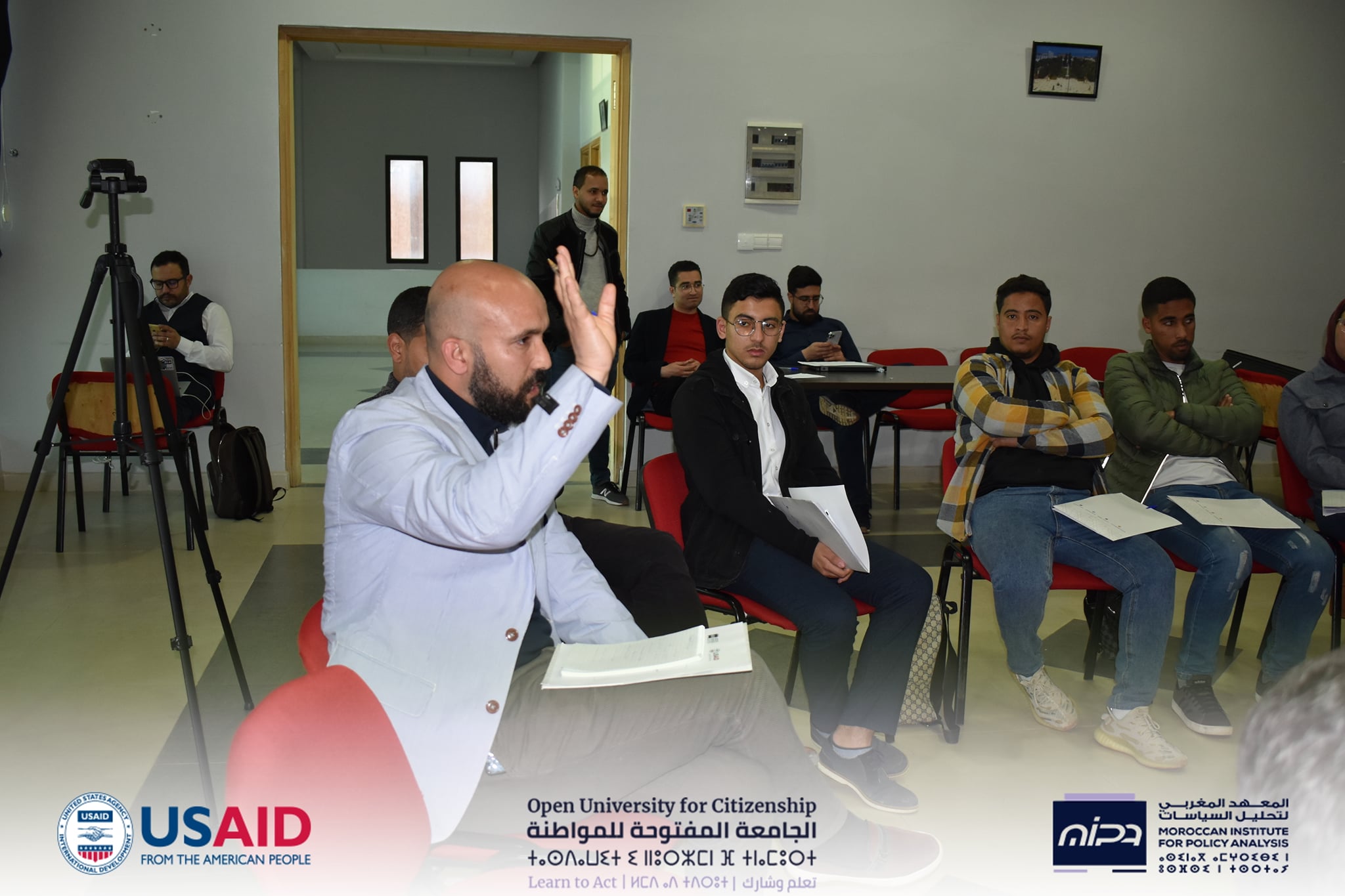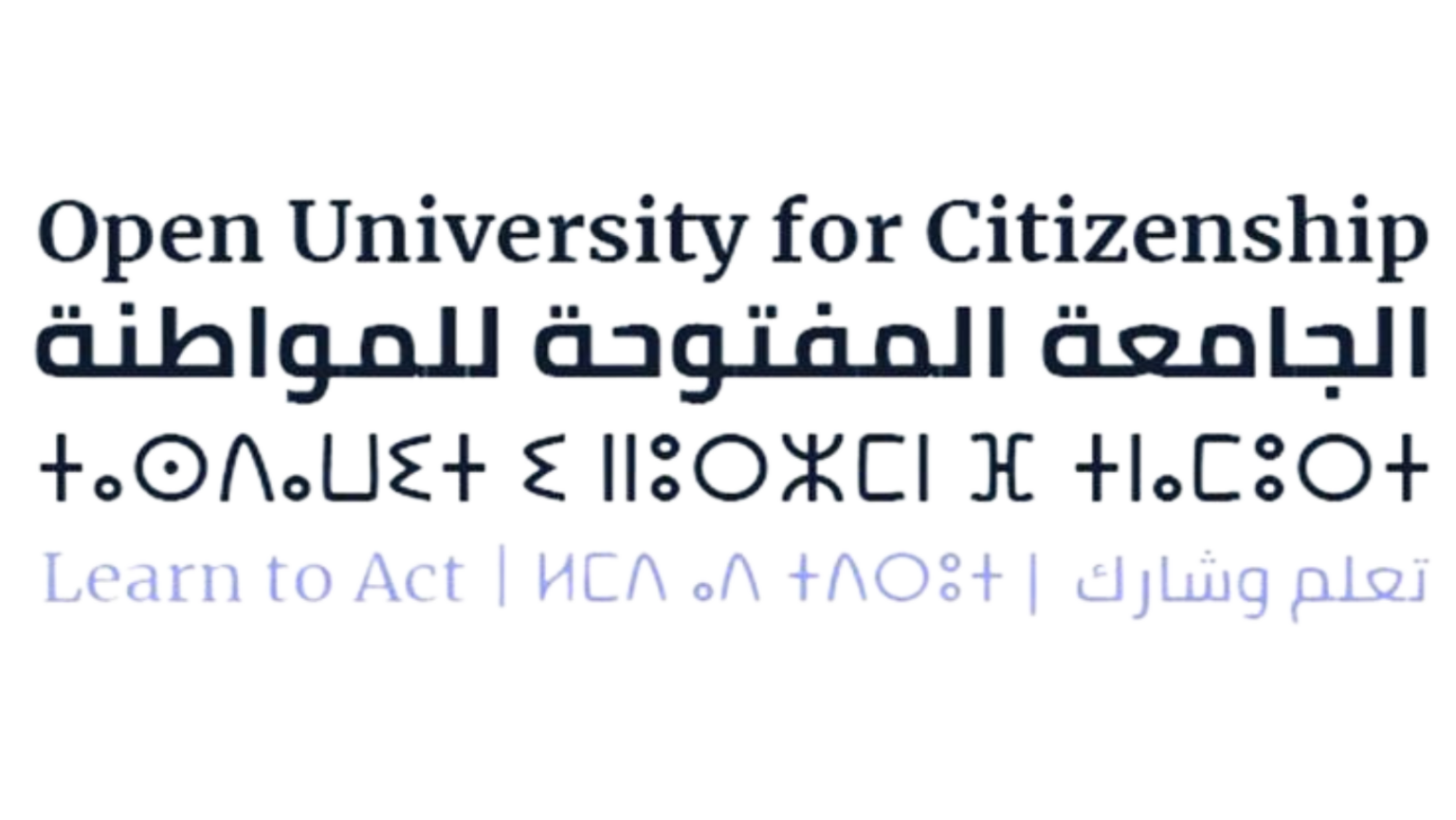Learn and Participate
“This page allows you to learn more about the ways of civic participation, and how to contribute to the decision-making process at the local level. On this page, you can learn more about the right to information, petitions, and the role of consultative bodies.”
Access To Information
Article 27 of the constitution stipulates that “citizens, male and female, have the right to obtain information in the possession of public administration, elected institutions, and bodies charged with public service functions. The right to information cannot be restricted except by law.”
This right is considered one of the effective tools for citizenship participation, as it entitles citizens to hold decision makers accountable.

In accordance with the provisions of the Constitution, particularly Article 27 thereof, Law 31-13 determines the field of application of the right to access information held by public administrations, elected institutions and bodies entrusted with the functions of public service, as well as the conditions and modalities for its exercise. You can view the law at the following link.
You can submit a request to obtain information from public institutions and administrations by choosing the electronic method through the electronic portal www.chafafiya.ma or filling out and downloading the information request form and handing it directly to the concerned institution or body in exchange for a deposit receipt, or via the e-mail of the person assigned to receive information requests in the institution or the relevant authority in return for notice of receipt.
Submission of petitions
The right to submit petitions to public authorities and territorial councils is one of the basic rights granted by the Constitution of the Kingdom of Morocco to citizens and civil society associations, as an important means that enables them to participate in the production and improvement of public decisions and policies, and an effective tool to transfer their problems to public authorities, and also as a means to enhance transparency And the governance of public action within the framework of collective responsibility.
The provisions of Articles 15 and 139, respectively, frame this constitutional right, as the first relates to the right of citizens to submit petitions to the public authorities, represented by the Prime Minister, the Speaker of the House of Representatives, and the President of the Council of Advisors. With regard to the second, the right of associations, citizens, and citizens to submit petitions to the chairpersons of the councils of the three territorial collectivities, identified in the head of the regional council, the head of the prefecture or region council, and the head of the commune council.
You can review the guide to the procedures for managing petitions at the regional level, the guide to the procedures for managing petitions at the level of prefectures and regions, and the guide to the procedures for managing petitions at the community level,

Advisory bodies
The constitution stipulates that the councils of other regions and territorial collectivities establish participatory mechanisms for dialogue and consultation, to facilitate the participation of citizens and associations in the preparation and follow-up of development programs. The regulatory laws of the regions, prefectures, regions and collectivities provide for the creation of advisory bodies in the councils of territorial collectivities.
Thus, the councils of the regions create three advisory bodies:
- An advisory body, in partnership with civil society actors, specialized in studying regional issues related to activating the principles of equality, equal opportunities, and the gender approach.
- An advisory body specialized in studying issues related to youth concerns.
- An advisory body, in partnership with the economic actors of the region, concerned with studying regional issues of an economic nature
As for the councils of prefectures, regions, and groups, they create an advisory body in partnership with civil society actors, specialized in studying regional issues related to activating the principles of equality, equal opportunities, and the gender approach.
You can review the guides for the procedures for creating, activating, operating and tracking the Equality, Equal Opportunities and Gender Approach Authority:
- Procedure guide for creating, activating, operating and tracking the Equality, Equal Opportunity and Gender Approach Authority within the entities.
- Procedure guide for creating, activating, operating and tracking the Equality, Equal Opportunity and Gender Approach Authority within the prefectures and regions
- Procedure guide for creating, activating, operating and tracking the Equality, Equal Opportunity and Gender Approach Authority within groups.


